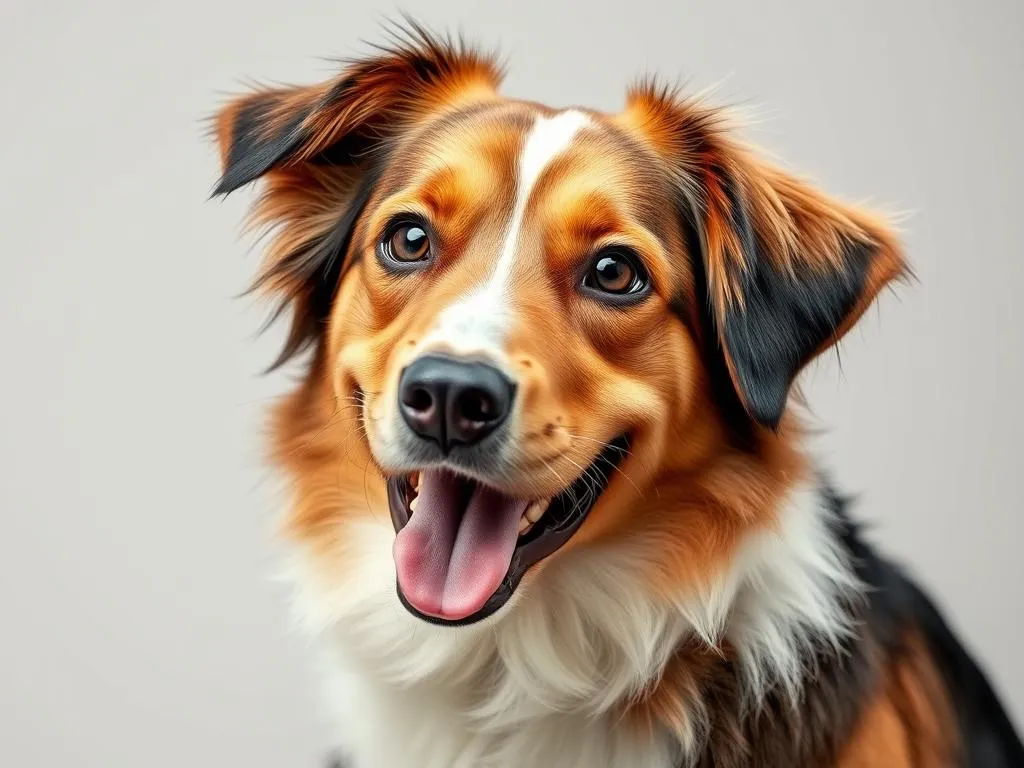
Introduction
Choosing the right dog breed is crucial, not only for compatibility with your lifestyle but also for ensuring a harmonious relationship based on personality and temperament. Among the various qualities that make a dog beloved by its owner, affection stands out. Affectionate dogs are known for their loving nature, which can significantly improve mental health, reduce stress, and provide companionship. In this article, we will delve into the most affectionate dog breeds, exploring what makes them special and how their affectionate behaviors can enrich your life.
Understanding Affectionate Behavior in Dogs
What is Affection in Dogs?
Affection in dogs refers to their ability to express love and attachment toward their human companions. This can manifest in various ways, such as cuddling, following their owners around, licking, or simply being close by. It’s important to distinguish between affection and dependency; while affectionate dogs enjoy human interaction, they can also maintain independence and confidence.
Factors Influencing Affectionate Behavior
Several factors can influence how affectionate a dog can be:
-
Genetics and Breed Characteristics: Certain breeds are naturally more inclined to be affectionate due to their genetic makeup. Breeds developed for companionship often exhibit higher levels of affection.
-
Socialization and Training: Dogs that have been well-socialized and trained from a young age are more likely to exhibit affectionate behaviors. Positive reinforcement training helps build trust and a strong bond between dog and owner.
-
Environment and Previous Experiences: A dog’s past experiences can shape its behavior. Dogs that have been treated kindly and have positive interactions with humans are more likely to be affectionate.
Benefits of Having an Affectionate Dog
Owning an affectionate dog can provide numerous benefits:
-
Emotional Support and Companionship: Affectionate dogs can offer emotional stability and companionship, making them ideal companions for individuals and families alike.
-
Positive Effects on Family Dynamics: An affectionate dog can act as a social catalyst in the home, helping foster connections among family members.
-
Health Benefits: Studies have shown that owning a dog can lower blood pressure, reduce stress levels, and even alleviate feelings of loneliness. The bond formed with an affectionate dog can enhance these benefits significantly.
Criteria for Identifying Affectionate Dog Breeds
Behavioral Traits to Look For
When identifying affectionate dog breeds, look for specific behavioral traits, such as:
-
Loyalty: Affectionate dogs tend to form strong bonds with their owners, often displaying loyalty and devotion.
-
Playfulness: Many affectionate breeds enjoy playing games and engaging in physical activities, demonstrating their love through joyful interactions.
-
Sociability: Affectionate dogs are usually friendly and enjoy being around people and other pets, showcasing their desire for companionship.
Assessing a dog’s temperament through interaction and observation can help determine its affectionate nature.
The Role of Size and Energy Levels
Size and energy can influence how affection is expressed:
-
Small Breeds: Often, smaller breeds like the Cavalier King Charles Spaniel and Bichon Frise are known for their affectionate behavior due to their close proximity to their owners.
-
Large Breeds: Larger breeds, such as the Labrador Retriever and Boxer, can also be extremely affectionate, often displaying their love through protective behaviors and physical closeness.
Understanding the energy levels of different breeds is essential, as high-energy dogs may require more activity, increasing the opportunities for bonding.
Owner Experiences and Testimonials
Personal experiences play a crucial role in identifying affectionate breeds. Many dog owners share stories of how their pets express love, whether through snuggles on the couch or excited greetings at the door. Gathering testimonials and observing behaviors can provide valuable insights into which breeds are likely to be more affectionate.
Top 10 Most Affectionate Dog Breeds
Labrador Retriever
The Labrador Retriever is one of the most popular dog breeds in the world, known for its friendly disposition. Their affectionate nature makes them excellent family pets. Labs are eager to please and enjoy being part of family activities, often showing affection through playful antics and gentle nudges for attention.
Golden Retriever
Similar to Labs, Golden Retrievers are renowned for their loyalty and friendly temperament. They are highly sociable and thrive on human interaction, often displaying their affection through cuddling and playful behavior. Their gentle nature makes them fantastic companions for children and adults alike.
Cavalier King Charles Spaniel
The Cavalier King Charles Spaniel is a small breed known for its loving demeanor. These dogs are incredibly affectionate and enjoy cuddling with their owners. Their socialization needs are significant; they flourish in environments where they receive plenty of attention and interaction.
Poodle (Standard and Miniature)
Poodles, whether standard or miniature, are not only intelligent but also affectionate. Their playful and loving nature makes them great companions. The affectionate behavior may vary slightly between sizes, with standard Poodles often displaying a more laid-back demeanor, while miniature Poodles might be more energetic.
Beagle
Beagles are known for their friendly and affectionate nature. Their pack mentality drives their need for social interaction, making them lovable companions. Beagles often express affection through cuddling and playful behavior, thriving in environments where they can bond with their family.
Bichon Frise
The Bichon Frise is a small, cheerful breed that loves to be around people. Their sociable and affectionate traits make them ideal family pets. Bichons display their affection through play and cuddling, often seeking out human contact to express their love.
Bulldog
Bulldogs have a unique way of showing affection. Known for their loyalty, they often form strong bonds with their owners and express their love through close contact and gentle nudges. Their laid-back demeanor makes them excellent companions for those who appreciate a more relaxed pet.
Shih Tzu
The Shih Tzu is known for its affectionate nature, especially towards family members. These little dogs thrive on human interaction and are happiest when being cuddled or petted. Their loving demeanor makes them excellent companions for families and individuals alike.
Boxer
Boxers are playful and affectionate, often displaying their love through exuberant greetings and playful antics. They are known to be protective of their families, making them both loving companions and loyal guardians.
Dachshund
Dachshunds are known for their loyalty and affection towards their owners. Their unique personality traits often lead them to develop strong bonds with their families, showcasing their love through cuddling and companionship.
Tips for Bonding with Your Affectionate Dog
Training and Socialization
Training plays a pivotal role in fostering affection. A well-trained dog is more likely to feel secure and confident, which enhances its affectionate behavior. Positive reinforcement methods, such as treating and praising, can help develop a strong bond between you and your dog. Early socialization is equally important, allowing your dog to interact with other pets and people, which can enhance its affectionate nature.
Daily Activities to Enhance Affection
Engaging in daily activities can strengthen the bond you share with your dog. Here are some activities to consider:
-
Walks: Regular walks not only provide exercise but also opportunities for bonding and exploration together.
-
Playtime: Engage in games like fetch or tug-of-war to foster interaction and fun.
-
Routine: Establishing a consistent routine helps your dog feel secure, further enhancing affectionate behaviors.
Recognizing and Responding to Affectionate Behaviors
Understanding your dog’s affectionate behaviors is vital. Signs of affection might include:
-
Cuddling: Seeking closeness by snuggling against you.
-
Tail Wagging: A wagging tail often indicates happiness and affection.
-
Licking: Dogs may lick their owners as a way to show love.
Responding positively to these behaviors, such as offering pets or treats, encourages your dog to express its affection more readily.
Conclusion
Choosing a dog that embodies affection can bring immense joy and companionship to your life. The most affectionate dog breeds can enhance your emotional well-being and strengthen family dynamics. When selecting a breed, consider your lifestyle, home environment, and the specific needs of the dog. The joy of having an affectionate dog is unparalleled, as they can provide unwavering love and companionship that enriches your life in countless ways.
FAQs
What are the most affectionate dog breeds for families?
Breeds like Golden Retrievers, Labrador Retrievers, and Cavalier King Charles Spaniels are often among the most affectionate and family-friendly options.
How can I train my dog to be more affectionate?
Use positive reinforcement techniques, such as treats and praise, to encourage affectionate behavior. Regular training sessions can also help build trust and strengthen your bond.
Are small dog breeds just as affectionate as large breeds?
Yes, many small dog breeds, such as Bichon Frise and Shih Tzus, are known for their affectionate nature, just like larger breeds.
What should I consider when adopting an affectionate breed?
Consider your lifestyle, home environment, and the amount of time you can dedicate to training and socialization. Each dog has unique needs that should align with your lifestyle.
How do I know if a dog is right for me?
Spend time interacting with different breeds to see which one resonates with you. Consider factors such as energy levels, grooming needs, and temperament to find a dog that fits your lifestyle.








